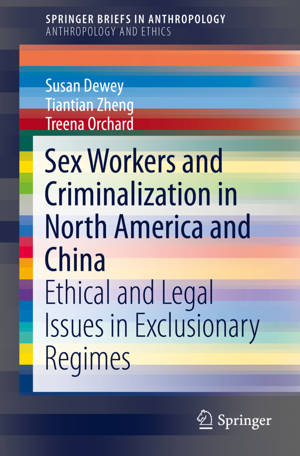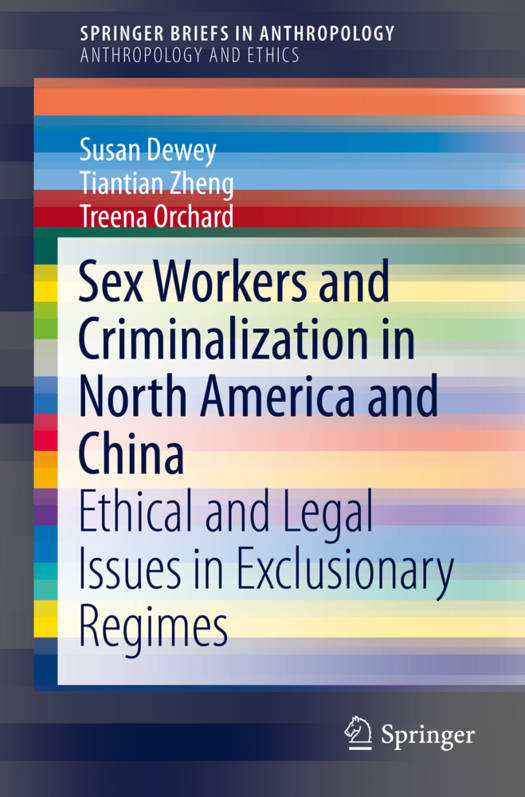
Je cadeautjes zeker op tijd in huis hebben voor de feestdagen? Kom langs in onze winkels en vind het perfecte geschenk!
- Afhalen na 1 uur in een winkel met voorraad
- Gratis thuislevering in België vanaf € 30
- Ruim aanbod met 7 miljoen producten
Je cadeautjes zeker op tijd in huis hebben voor de feestdagen? Kom langs in onze winkels en vind het perfecte geschenk!
- Afhalen na 1 uur in een winkel met voorraad
- Gratis thuislevering in België vanaf € 30
- Ruim aanbod met 7 miljoen producten
Zoeken
Sex Workers and Criminalization in North America and China
Ethical and Legal Issues in Exclusionary Regimes
Susan Dewey, Tiantian Zheng, Treena Orchard
€ 106,95
+ 213 punten
Omschrijving
Sex work continues to provoke controversial legal and public policy debates world-wide that raise fundamental questions about the state's role in protecting individual rights, status quo social relations, and public health. This book unites ethnographic research from China, Canada, and the United States to argue that criminalization results in a totalizing set of negative consequences for sex workers' health, safety, and human rights. Such consequences are enabled through the operations of an exclusionary regime, a dense coalescence of punitive forces that involves both governance, in the form of the criminal justice system and other state agents, and dynamic interpersonal encounters in which individuals both enforce and negotiate stigma-related discrimination against sex workers. Chapter Two demonstrates how criminalization harms sex workers by isolating their work to potentially dangerous locations, fostering mistrust of authority figures, further limiting their abilities to find legal work and housing, and restricting possibilities for collective rights-based organizing. Criminalized sex workers report police harassment, seizure of condoms, and adversarial police-sex worker relations that enable others to abuse them with impunity. Chapter Three describes how sex workers negotiate these restrictions on their rights and personal autonomy via their arrest avoidance and client management strategies, self-treatment of health issues, selective mutual aid, rights-based organizing, and entrenchment in sex work or other criminalized activities. Chapter Four describes how researchers working in countries or locales that criminalize sex work face ethical concerns as well as barriers to their work at the practical, institutional, and political levels.
Specificaties
Betrokkenen
- Auteur(s):
- Uitgeverij:
Inhoud
- Aantal bladzijden:
- 99
- Taal:
- Engels
- Reeks:
Eigenschappen
- Productcode (EAN):
- 9783319257617
- Verschijningsdatum:
- 6/01/2016
- Uitvoering:
- Paperback
- Formaat:
- Trade paperback (VS)
- Afmetingen:
- 156 mm x 234 mm
- Gewicht:
- 167 g

Alleen bij Standaard Boekhandel
+ 213 punten op je klantenkaart van Standaard Boekhandel
Beoordelingen
We publiceren alleen reviews die voldoen aan de voorwaarden voor reviews. Bekijk onze voorwaarden voor reviews.









